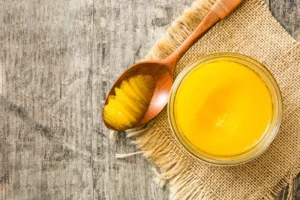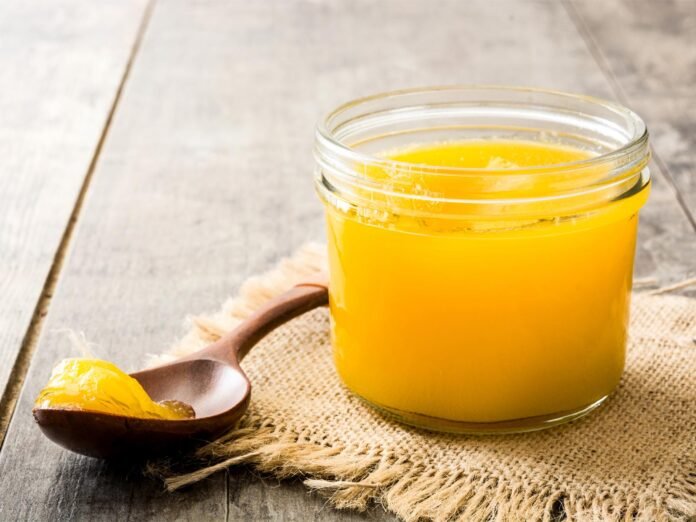Ghee: It is a clarified butter with a rich golden color and nutty flavor, has been a culinary staple in Indian cuisine for centuries. However, there are several misconceptions surrounding this beloved ingredient. In this article, we aim to debunk the common myths about ghee and shed light on its nutritional benefits.
Read this also: Bollywood Actor Sunny Deol Sheds Light on India-Pakistan Conflict: Blame Game Fuels Hatred, Says Gadar 2 Star”
Here are some myths and facts about ghee

Myth 1: Ghee is unhealthy and leads to weight gain.
Contrary to popular belief, it can be a part of a healthy diet when consumed in moderation. It contains essential fatty acids such as omega-3 and omega-6, which aid in maintaining heart health. Moreover, it is a good source of healthy fats that promote satiety, making it beneficial for weight management.
Myth 2: Ghee raises cholesterol levels.
It is true that it is primarily composed of saturated fats. However, recent studies suggest that moderate consumption of it may not significantly impact cholesterol levels. The unique fatty acid profile of this nutritious fat, along with its antioxidant properties, might actually have a neutral or even beneficial effect on cholesterol levels.
Myth 3: Ghee is only suitable for Indian cuisine.
While it is widely used in Indian cooking, its versatility extends far beyond that. It can enhance the flavors of various dishes from different cuisines, whether used in sautéing vegetables, baking, or even as a spread on toast. Its rich, buttery taste makes it a great addition to a wide range of recipes.
Myth 4: Ghee is not suitable for lactose-intolerant individuals.
Through the clarification process, ghee is stripped of milk solids, leaving primarily fat. As a result, it contains minimal lactose and is generally well-tolerated by lactose-intolerant individuals. However, it is important to note that individual tolerances may vary, so it’s best to consult a healthcare professional if you have specific dietary concerns.
Myth 5: Ghee has an infinite shelf life.
It does have a longer shelf life compared to other oils and fats due to its low moisture content. However, it is not completely immune to spoilage. Over time, exposure to light, heat, and air can cause ghee to turn rancid. Proper storage in an airtight container, away from direct sunlight, is essential to maintain its freshness and quality.



